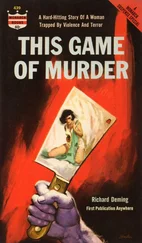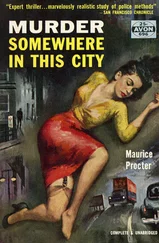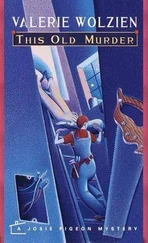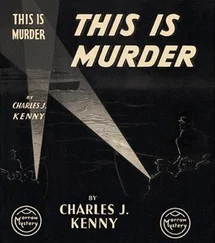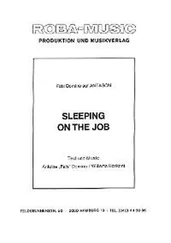My next stop was President Smithson’s office. He had insisted on being informed at every step of my investigation, and the mayor had given me the usual order to keep him happy.
We sat in his office, just slightly less opulent than George Lewis’s, and he grilled me for a solution. “So, what are you saying, Steve? You think one of my faculty did this? Do you have any idea how that’s going to look?”
“No, sir. I mean, I don’t know, sir. They all have alibis.”
“That settles it, then. You’ll just have to look somewhere else for your murderer.” He rolled his chair backward and stood to escort me out.
I remained seated. “It’s just that, well, their alibis are each other. It sounds way too convenient.”
“Unless you can prove that they’re all lying, you’ve got no choice but to move this investigation along,” the president insisted.
I knew Smithson was right. I also knew what that meant. Annette.
I had left instructions with my deputy to call me as soon as she arrived at Dillard. With no message waiting for me on my phone, I decided to catch an early lunch.
The walk to the faculty/staff dining room was brisk. The December air was crisp and unforgiving. Clutches of flame azalea bushes crouched low along the path, bare branches trying to shelter their cores from the biting wind. Every kind of maple imaginable-silver, red, striped, sugar, black, and ashleaf-shivered along Campus Walk. Bigleaf magnolias yearning for spring lined the pathways between the academic quad and the rest of the buildings.
The dining room was buzzing with the news of George’s murder. All of the Business faculty were there, each holding court at his or her own table, entertaining rapt listeners with what it was like to be interrogated, how George’s office looked decorated with his own cranial matter, and why it was only a matter of time before Annette would be arrested.
I rose to get my third cup of coffee, when I heard the familiar ring tone I’d assigned to all my work numbers. It was my deputy. Annette Walker was in Dillard Hall.
* * * *
I waited in Dillard 400 for my deputy to bring Annette in. I couldn’t sit still and paced the large room. I hadn’t seen her in a week, not since I ran into her outside Washington Hall.
Annette had been coming out of her regular Friday afternoon committee meeting, and I was on my way to lunch. We walked together to the dining hall. She’d been bubbling over with the news of her daughter’s baby shower-the theme, what she would wear, her gift for her first grandchild. I’d hugged her with my congratulations; she’d hugged me back.
I was thinking about the possibilities when Annette stepped into the room. I started toward her, arms outstretched, but dropped them when I saw my deputy walking in behind her.
After a quick exchange with my deputy about the results of the faculty interviews, I motioned for him to leave. He closed the door behind him. Annette remained standing, her hands clasped in front of her.
“Annie.” I placed a hand on her shoulder.
She smiled weakly and sat down in one of the student desk chairs near the door.
I took a chair near her. “Annie, tell me what happened last night.”
She crossed her arms over her chest and didn’t look up when she spoke.
“I left here the same time I do every night, a few minutes after six p.m.,” she began.
“George asked me to stay late and help him write up new contract letters, but I had Stacy and Mark’s shower to go to, and the bus was leaving in less than twenty minutes. If I missed it, I would miss my connection. The party started at eight, and I wanted to leave myself plenty of time.”
Annette had grown up in Manhattan, I knew, where it was too expensive and too crowded to own a car. She got used to public transportation early in her life and stuck with it. She had moved to Boswell County three years ago but still hadn’t learned how to drive. Lately, George did much of her driving for her-to and from his house. I pushed that thought aside and continued with my interview.
“There were plenty of buses that would have gotten you to Stacy’s by eight p.m.; what was your rush?” I asked.
“The shower got moved at the last minute from Stacy’s house to one of her friend’s in England Run,” she explained. “Jennifer, my student aide, gave me the message. I’d never heard of the neighborhood, so I wanted to leave myself extra time to get there.”
“So, plenty of people must have seen you at the party,” I said, feeling this, coupled with the complicated bus routes I knew she had to take to get there, could serve as an alibi.
Her lips clamped down in a thin line.
“I never made it to the party,” she said. She rubbed her temples with her fingers. “I tried asking people for directions; but no one had heard of the street. The bus dropped me off in the England Run area, and from there I had planned on walking the last few blocks. I finally stopped at someone’s house to use their phone, but my daughter didn’t pick up. I ended up coming home.” She dabbed her eyes with a handkerchief.
“Why didn’t you just use your cell phone?”
“I lost it last week, right after I saw you. I just don’t know where it went. You know, this is all so strange. When I spoke to my daughter late last night, she said the shower location had never changed. Why would someone leave me a fake message like that?”
Good question.
“Annie, I’ll need to know exactly which buses you took and everyone you talked to. Do you remember where the house was where you stopped?”
Annette gave me her bus route and the general location and description of the house where she had stopped to call her daughter. The other people she had talked to were simply passersby; there would be little chance of tracking them down. Still, I had something.
“What happened in George’s office, Annette?”
“I didn’t kill him, Steve. You know me better than that.” She looked confused, as if trying to figure out if all of this was real. “I can’t believe he’s dead.”
I tried asking her a few more questions, but she was barely holding it together.
“It’ll be okay, Annie,” I said, and put my arms around her. She sniffed noisily but didn’t say anything. Instead, she searched my face, as if looking for a clue about what I was thinking. I wanted to tell her, but it wasn’t time.
Just then, my phone rang. It was Smithson. I told Annette that I’d see her again soon and asked my deputy to drive her home. President Smithson wanted to know if I had learned anything new. I spent the next half-hour in his office filling him in.
“So, Annette killed George in a fit of rage over being rejected? Wrath of a woman scorned, huh?” Smithson said.
“Just a minute, sir. I still have leads to follow up. I’m not ready to make an arrest, yet,” I said, picturing squad cars racing to Annette’s house and officers dragging her away in shackles.
“Well, see that an arrest gets made soon. We’ve got students running around scared, parents threatening to pull their kids out, and townspeople spreading more and more rumors about what’s happening at Hathaway. This is not how I want to end my presidency.”
He dismissed me with the understanding that I would report every new detail to him as soon as I uncovered it. Of course, the news would go live the minute I left his office. He would make certain everyone knew that someone would pay for the murder. Right now, it looked as if that someone would be Annette.
* * * *
I spent the next day recreating how George Lewis’s murder would have happened if Annette were the killer. I started with a visit to the student aide, a local girl, who was waiting out the investigation at home with her parents.
Читать дальше

